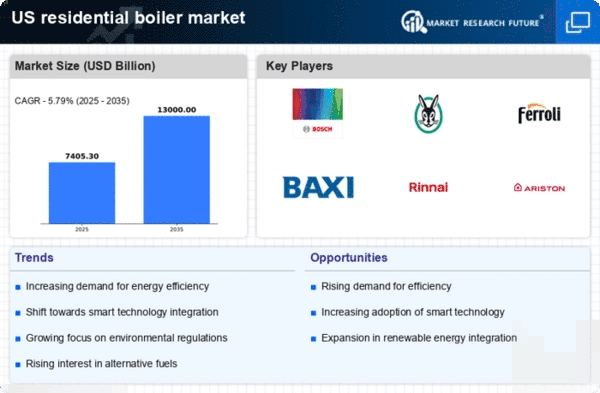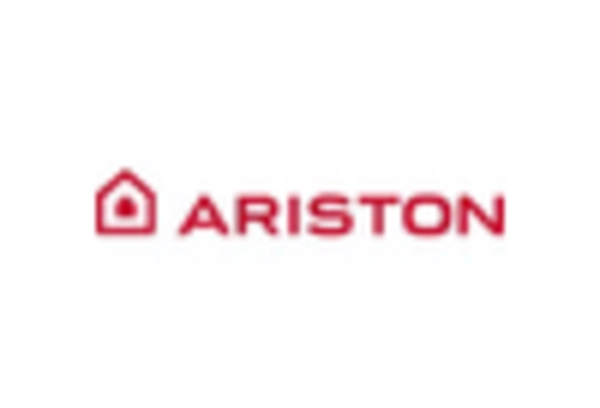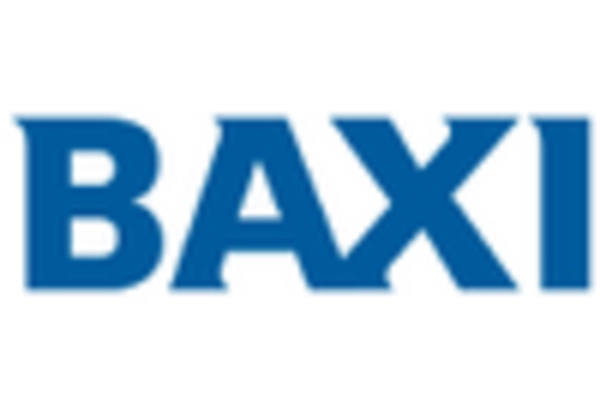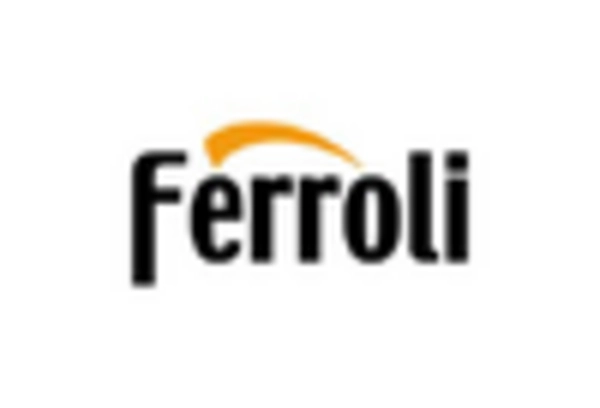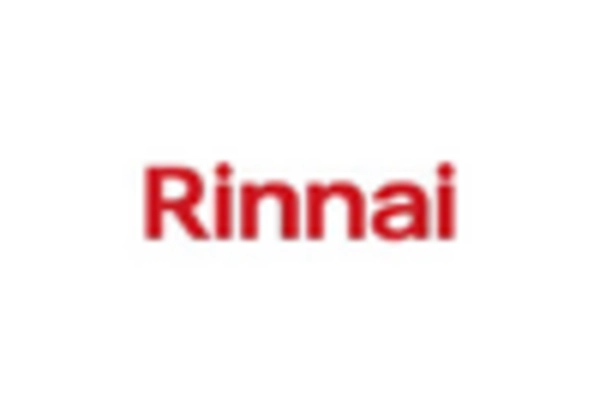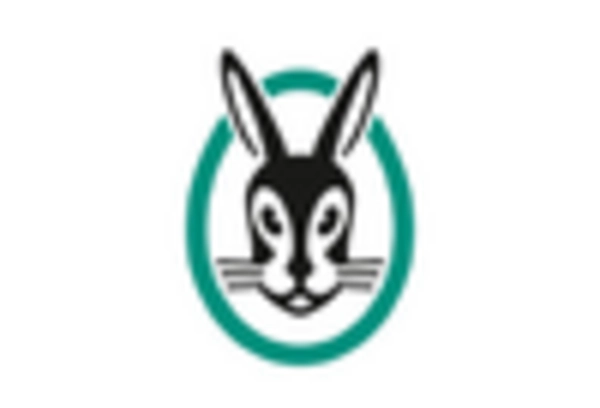The residential boiler market is currently characterized by a competitive landscape that is both dynamic and multifaceted. Key growth drivers include the increasing demand for energy-efficient heating solutions, regulatory pressures for lower emissions, and advancements in smart technology integration. Major players such as Bosch (DE), Rinnai (JP), and Viessmann (DE) are strategically positioned to leverage these trends. Bosch (DE) focuses on innovation in energy-efficient technologies, while Rinnai (JP) emphasizes its commitment to sustainability through the development of eco-friendly products. Viessmann (DE) is actively pursuing digital transformation initiatives, enhancing its product offerings with smart home compatibility, which collectively shapes a competitive environment that prioritizes technological advancement and environmental responsibility. In terms of business tactics, companies are increasingly localizing manufacturing to reduce supply chain vulnerabilities and optimize operational efficiency. The market structure appears moderately fragmented, with several key players exerting influence over specific segments. This fragmentation allows for niche players to thrive, while larger companies consolidate their market share through strategic partnerships and acquisitions, thereby enhancing their competitive positioning. In October 2025, Bosch (DE) announced a partnership with a leading smart home technology firm to integrate its residential boilers with advanced home automation systems. This strategic move is likely to enhance Bosch's product appeal, aligning with consumer preferences for interconnected home solutions. By embracing smart technology, Bosch positions itself as a forward-thinking leader in the market, potentially increasing its market share among tech-savvy consumers. In September 2025, Rinnai (JP) launched a new line of high-efficiency condensing boilers designed to meet stringent environmental regulations. This product introduction not only underscores Rinnai's commitment to sustainability but also addresses the growing consumer demand for eco-friendly heating solutions. The strategic importance of this launch lies in its potential to capture a larger segment of environmentally conscious consumers, thereby reinforcing Rinnai's competitive edge in the market. In August 2025, Viessmann (DE) expanded its operations in North America by establishing a new manufacturing facility aimed at increasing production capacity for its innovative boiler systems. This expansion is indicative of Viessmann's long-term growth strategy and its intent to strengthen its foothold in the North American market. By localizing production, Viessmann can enhance supply chain efficiency and respond more swiftly to market demands, which is crucial in a competitive landscape. As of November 2025, current competitive trends are heavily influenced by digitalization, sustainability, and the integration of artificial intelligence (AI) into product offerings. Strategic alliances are increasingly shaping the landscape, enabling companies to pool resources and expertise to drive innovation. The competitive differentiation is likely to evolve from traditional price-based competition towards a focus on technological innovation, reliability in supply chains, and sustainable practices. This shift suggests that companies that prioritize these aspects will be better positioned to thrive in the future.


